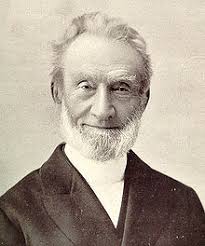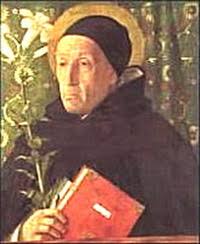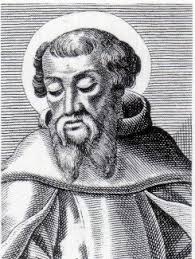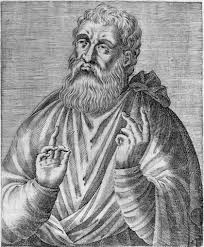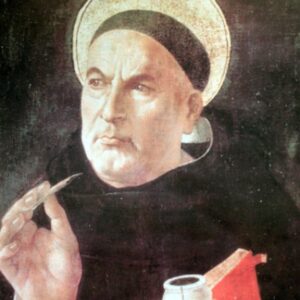To read part two follow this link:https://churchtimesnigeria.net/essence-of-theological-schools/
CLOUDS OF WITNESSES AND LIVING EPISTLES
By Olatokunbo Odunuga
In the similitude of Hebrews Chapter 12 where men of faith of millennia ago were living epistles, let us ignite our zeal and passions with the scholastic exploits of Bible scholars who were accredited with “turning the world upside down” in their generations, centuries, and thousands of years ago. Please reflect on the following whose influence span nearly 1,900 years. Thomas S. Kepler in his masterpiece of a classic, The Fellowship of the Saints, compiled the works and lives of worthy men and women who imprinted the sand of time with Christ-like devotion and influence.
In order to show the readers, the importance and relevance of scholastic exposure in seminaries and Bible colleges, the clouds of witnesses reflected below to establish the extraordinary and invaluable effect of scholarship to the grace of God in their lives and ministries. It is significant that Kepler himself was a professor of New Testament Language and Literature, Graduate School of Theology, Oberlin College.
GEORGE MUELLER
In 1825, when 19 years old, he left school and entered Hale University as a student of Divinity. The University had 1,260 students, including some 900 divinity students preparing themselves for the Lutheran Church ministries.
MEISTER ECKHART
Several centuries ago, Eckhart was described by one of the leaders of the German Romantic Movement as a “demi-mythical figure”. The only certain facts about his life were his studies in Paris, culminating in his graduation as Doctor of Theology in 1302. Then his fame as a preacher in Strasbourg, the official post he held in the dominion order in Germany, and finally his trial and condemnation by a Papa Bull of 1329.
CLEMENT of ALEXANDRIA (c.155- c.220)
Clement was a philosopher and became a Christian through his studies. Little is known of his early life except that he travelled in Greece, Italy, and Syria in quest of learning. Seeking the best teachers in the world, he came to Alexandria where he studied under Pantaenus and received vast amounts of scriptural knowledge.
IRENAEUS (c.115-c.202)
Irenaeus was born at Smyrna, in Asia Minor, where he learned Johannine Theology from bishop Polycarp, who in turn studied Johannine Writings at the feet of John the apostle himself.
JUSTIN MARTYR (c.100-165)
Born in Samaria, Justin Martyr studied in the schools of philosophers, becoming a disciple of Socrates and Plato. He was impressed that Christians did not fear death, and after a conversation with an elderly Christian, he became a Christian. Justin Martyr is known as one of the first Christian apologists (defenders of the faith).
THOMAS AQUINAS (1225-1274)
Called the “angelic doctor”, Thomas Aquinas systemized thought and brought about the wedding of faith and reason, Theology and Philosophy, thus giving to the Western Church its basic synthesis. It can be said that he “saved” Christian thought for the intellectual people of his time.
He was born near Aquino, Italy, of a noble family. In 1243, he entered the Dominican Order, against the will of his parents, and studied at Cologne under Albertus Magnus. From the time of receiving his degree of Bachelor of Divinity in 1248 until his death, he was a teacher in Paris and in Italy.
MARTIN LUTHER (1483-1546)
Ordained to the priesthood in 1507, he was a professor of Biblical Literature at Wittenberg by1512 and in 1515 he was made district vicar of eleven monasteries. His lectures at Wittenberg on the epistle of Romans did much to form his theological viewpoint. When in 1517, he nailed the ninety-five theses on the castle church at Wittenberg, he formally started the Protestant Reformation.
IGNATIUS of LOYOLA (1491-1556)
While bedridden he read devotional literature, being particularly impressed by the lives of Christ, Dominic, and Francis of Assisi. On March 25, 1522, he transferred his zeal from military life to religion and spent a year in penitence and solitude in a cave near Manresa. Later he began the study of educational rudiments at Barcelona. After study at the University of Alcala and the University of Salamanca, he entered the University of Paris in1528, where he studied Literature and Theology for seven years.
LANCELOT ANDREWES (1555-1626)
Fellow of Pembroke Hall, Cambridge, Andrewes was one of the scholars appointed in 1607 to prepare the King James Version of the Bible. He was Bishop of Ely, of Winchester of Chichester, and chaplain to Queen Elizabeth
FRANCIS of SALES (1567-1622)
Born of noble parents at the castle of Sales near Annecy, Savoy, he entered a Jesuit school in Paris. There he studied the classics, Hebrew and Philosophy, and led a life of severe self-discipline. Later he studied law at Padua and the Humanities in Paris.
Active against the reformation around Geneva where Calvin’s influence was strong, prolific in his writings, he is considered one of the doctors of the western church.
HENRY SCOUGAL (1650-1678)
In the Scottish tradition, no devotional writer ranks higher than Scougal, best known through his classic “The life of God in the Soul of Man”. He was ordained in 1672; later he became precentor in the Aberdeen Cathedral, was later appointed professor of Divinity in King’s College.
BENJAMIN WHICHCOTE (1609-1683)
He was for twenty years Sunday afternoon lecturer at Trinity Church, Cambridge, provost at King’s College, Cambridge, and Curate of several Parishes.
FRIEDRICH A.G. THOLUCK (1799-1877)
Among nineteenth-century German devotional theologians, Tholuck ranks very high. After theological training at Berlin University, he spent almost fifty years as a professor of Theology at Halle, the center of German rationalism. For two years-1827-29- he was a chaplain of the Prussian Embassy in Rome.
AUSTIN PHELPS (1820-1890)
Phelps was born in Massachusetts, educated at the University of Pennsylvania, Andover Theological Seminary and Union Theological Seminary. After serving the Pine Street congregational church, Boston, for several years, he became a professor of Sacred Rhetoric at Andover Theological Seminary in 1848. This position he held until his retirement. He also served as chairman of the faculty for ten years.
GEORGE MATHESON (1842-1906).
Of best-loved poems, “O Love That Wilt Not Let Me Go” ranks high. It was composed ny Matheson in five minutes when he was forty years old. By this hymn, he was known and loved by hundreds of thousands. Although blind, he graduated with honors at Edinburgh University. His fine self-discipline in meeting his handicap, his inmate saintly spirit and his capacity of intellectual activity brought from his pen a large number of theological books.
WALTER RAUSCHENBUSCH (1861-1918)
No American theologian can better claim the title “modern father of the social gospel” than Rauschenbusch. His writings, his living, and his devotional thoughts were all saturated with a deep concern for the social aspects of the Christian religion. Like Francis of Assisi, he loved men rather than humanity and was concerned that the strong should help emancipate the weak of their burdens.
Born in Rochester, New York, his early education was received in Germany. In 1883, he graduated with first honors from the Classical Gymnasium, Gütersloh, Germany. He then returned to the United States where he graduated from both the University of Rochester and Rochester Theological Seminary. He was ordained in the Baptist ministry. From 1897-1902, he concentrated his efforts in educational work for German ministries in this country and from 1902 until his death he was a professor of Church History at Rochester Theological Seminary.
AUGUSTINE POULAIN (1836-1919)
A French Theologian whose activities centered in Paris and a member of the Society of Jesus, Poulain has given to the world of mystical appreciation one of the finest comprehensive works by a Roman catholic writer – The graces of interior prayer. Originally written in French, the book has been translated into a number of languages. Of this classic, Daniel Considine says “Père Poulain’s book is much more than an examination of spiritual marvels”. It is a survey of the Kingdom of prayer in all its length and breadth, in its lowest as well as its most perfect forms.
RUDOLF OTTO (1869-1938)
In an analysis of sainthood, two qualities usually stand in opposition to each other – man’s humanity in contrast to God’s majesty. No writer has shown keener insight into the analysis of these two polar factors in mystical experience than Otto in the idea of the Holy.
Otto was born in Germany, educated at the Universities of Erlangen and Göttingen, taught Systematic Theology at Göttingen and Breslauan 1897-1901. In 1917 he was called to teach Philosophy of Religion at Marburg, retiring in 1929.
BURNETT. H. STREETER (1874-1939)
Known as both a New Testament critic and a religious philosopher, Streeter was deeply concerned with the analysis and description of religious experience. An Englishman by birth, he was educated at King’s College School, London, and Oxford. His professional career as a teacher and fellow was spent at Oxford, during which he also served as Canon of Hereford (1915-34). Streeter’s own devotional life is beautifully portrayed by the following incident. On one of his last visits to the United States, he spent one entire Good Friday in his hotel room, fasting and reading Thomas à Kempis’ Imitation of Christ.
EVELYN UNDERHILL (1875-1941)
No book has done more to evaluate and analyze the meaning of the saints from the time of Philo (20 B.C-40A.D) to the beginning of the twentieth century than mysticism: A study in the Natural and Development of man’s Spiritual Consciousness by Evelyn Underhill. It has gone through thirteen editions. Of twentieth-century women who have made a special study of the devotional life, she ranks among the highest.
Educated at King’s College for women, London, she spent much of her time in writing and lecturing. She was Upton lecturer at Manchester College, Oxford, 1921-22.
THOMAS R. KELLY (1893-1941)
Born of Quaker parents in Ohio and educated at Haverford and Harvard, Kelly was called to Haverford in 1936 to teach in the department of Philosophy.
Between his work in Berlin and his return to Haverford in 1936, he taught at Earlham College and the University of Hawaii
WILLIAM ADAMS BROWN (1865-1943)
Throughout his teaching ministry, which began in 1892, Brown was at Union Theological Seminary, New York, where in 1936 he became a Professor emeritus of Systematic Theology. His education was received at Yale, Union, and Berlin. America, Scottish and English universities conferred honorary degrees upon him. In 1893 he was ordained in the Presbyterian ministry.
Throughout his career, he was vitally interested in many practical aspects of Christianity; the Federal Council of the Churches of Christ in America, in which he was chairman of the department of research and education; the Religious Education Association, of which he was once president; the World Conference of Faith and Order, of which he was an executive member; the Near East College Association, of which he acted as president, the Institute for the Deaf and Dumb in New York, of which he served as director; the Board of Home Missions of the Presbyterians Church; and the Grenfell Association of America, of which he was the founder.
WILLIAM TEMPLE (1881-1944)
In recent years many have considered Temple an Archbishop of Canterbury, as the outstanding leader of Protestantism. He was born in the Palace, Exerter, the son of Frederick Temple, who later became an Archbishop of Canterbury. His education was received at Rugby and at Balliol College, Oxford. He was fellow and lecturer of Philosophy at Queen’s College, Oxford, 1904-10; Chaplain to the Archbishop of Canterbury, 1910-21; Chaplain to the king, 1915-21; Bishop of Manchester, 1921-28; Archbishop of York, 1928-42 and Archbishop of Canterbury at his death.
RUFUS M. JONES (1863 ——)
No contemporary scholar has done more in his writings to explain and evaluate the saints than Jones. Born of the Quaker parent in Maine and educated at Haverford, Heidelberg, Oxford, and Harvard, he taught Philosophy at is Alma mater, Haverford from 1893 until he became Professor Emeritus in 1934. During this half-century, he wrote more than forty books.
NIKOLAI A. BERDYAEV (1874——)
One of the most widely read contemporary Russian writers of Religious Philosophy is Berdyaev. A member of the Orthodox Church, he was exiled for his criticism of the governing synod of the Orthodox Church in Russia. After the revolution, he was a professor of philosophy at the University of Moscow. Because he upheld religion, he was expelled from Russia in 1922. He went to France where he directed his intellectual interest to “the philosophy of the spirit”. In 1834 he became director of the Academy of the Philosophy of Religion in Paris and editor of Putj ( the way).
HARRY EMERSON FOSDICK (1878 —–)
Born in Buffalo, New York, and educated at Colgate, Columbia and Union Theological Seminary, Fosdick was ordained in the Baptist ministry in 1903. He served as minister of First Baptist Church, Montclair, New Jersey, 1904-15. From 1908-46, he taught Homiletics and Practical Theology at Union Theological Seminary and from 1926-46. he was minister of the Riverside Church, New York.
ALBERT W. PALMER (1879——)
For many years Palmer was known chiefly as the president of a Theological Seminary. His interests in the field of Practical Theology have touched deeply the field of worship.
Educated at the University of California and Yale, Palmer was ordained a Congregational minister in 1904. He served congregational churches in the United States and Hawaii from 1904-30 when he became president of Chicago Theological Seminary and later president Emeritus.
WILLARD L. SPERRY (1882—–)
Educated at Olivier College, Yale, and Oxford, where he was a Rhodes scholar. Sperry held congregational pastorates in New England from 1908-22. During part of this time, he also taught at Andover Theological Seminary. Since 1922, he has been Dean of Harvard Divinity School. As a religious educator, he has exerted a wide influence upon American religious life through his interpretation of literature, his insight into the liturgy, and his prophetic voice.
JACQUES MARITAIN (1882—–)
Maritain is considered the foremost contemporary interpreter of Neo-Thomism. He has lectured in many countries and in the United States at a number of universities. He was educated in Paris, Heidelberg, and in Rome. In 1906, he was converted to Roman Catholicism and in 1908 began his study of scholasticism. Besides lecturing widely and writing profusely, he has been Professor of Philosophy at the Catholic Insitute in Paris and at the Institute of Mediaeval Studies at Toronto.
HENRY N. WIERMAN (1884—–)
From 1927 to 1947, Wieman taught Philosophy of Religion in the divinity school at the University of Chicago. He calls himself a naturalistic theist who sees God as a process of growth in the universe, immediately conceived and perceived. God works for good in every event to the degree that men co-operate with such a creative activity. This spirit of growth is super – personal.
Wieman was born in Missouri, educated at Park, Harvard, Jena, and Heidelberg. Before going to Chicago, he taught Philosophy at Occidental College, 1917-27.
EDGAR S. BRIGHTMAN (1884—-)
One of the American schools of thought which has succeeded in wedding Philosophy and Theology is that of personalism, whose founder was Borden P. Bowne of Boston University. From 1919, Brightman held the Borden P.Brown chair of Philosophy at Boston University Graduate School and was a leading exponent of personalism.
Born in Massachusetts, educated at Brown, Boston, Berlin, and Marburg, Brightman taught at Brown, Nebraska Wesleyan, and Wesleyan University
JOHN BAILLIE (1886—–)
Baillie was born in Garloch, Scotland, and educated at Inverness Royal Academy, Edinburgh, Toronto, Union Theological Seminary and Auburn Theological Seminary. In 1943, he was the moderator of the General Assembly of the Church of Scotland.
As a teacher of Systematic Theology, few men have better combined the devotional with the Christian theological structure than Baillie.
KARL BARTH (1886—–)
Barth has been one of the most provocative theological voices in the last century. Some have evaluated him as the most stimulating voice in Protestantism since Luther. He was born in Switzerland, educated at the universities of Bern, Berlin, Tübingen, and Marburg. He taught Theology at Göttingen, Münster, Bonn, and Basel, and was editor of Zwischen Denseiten. His thinking was much stimulated by Søren Kierkegaard, the Danish theologian and due to Barth’s interest, Kierkegaard’s writings have been translated for the English speaking world in recent years.
TOYOHIKO KAGAWA (1888—–)
Among contemporary Christian who practice redemptive love in the unfortunate areas of society, Kagawa stands among the foremost. Born in Japan, he was educated at Meijii Gakun College, Kobe Theological Seminary, and Princeton. From 1908-1923, he lived in the slums of Kobe, helping the down-trodden. In Japan, he has worked with the Labor Federation, Farmers co-operative, Industrial Young Men’s Association, Imperial Economic Conference. He has headed the Social Bureau of Tokyo.
Kagawa’s work in the Kobe slums, his labor for co-operative societies in Japan, his role as a world evangelist, his loyalty to Christian ideals amid a Shinto civilization, mark him as one of the great saints of the twentieth century. He can readily be called the Francis of Assisi of modern times. Defective insight and frail in body, yet understanding the power of Christian gospel, he is worth to write meditations on the cross.
CHRISTOPHER DAWSON (1889—-)
Of contemporary Neo-Thomist thinkers, Dawson ranks high. Few interpreters of history seem to probe more deeply into the meaning of present world conditions. Educated at Winchester and Oxford, he joined the Roman Catholic Church in 1914. He was a lecturer in the History of Culture at University College, Exeter, 1930-36 and was the Forwood lecturer in the Philosophy of Religion at Liverpool in 1934. From p 1940, he was editor of the Dublin Review.
GEORGIA HARKNESS (1891—-)
Recognised as one of the leading women theologians of her generation and also gifted as a poet, Georgia Harkness has covered a wide gamut of religious themes in her writings. In subsequent years four of her books have been particularly related to religious experience: Holy Flame, The Glory of God, Religious Living, and The Dark Night of the Soul. This last deals carefully with experiences of the saints, especially with the type of mystical devotion which wanes occasionally into despair, frustration, and spiritual desolation. Although this book takes its theme from John of the Cross, it radiates to many other saints who have shared this common experience.
Georgia Harkness was educated at Cornell, Boston, Yale, Harvard, and Union Theological Seminary. After teaching at Boston, Elmira, and Mount Holyoke, she became a professor of Applied Theology at Garrett Biblical Institute in 1939.
REINHOLD NIEBUHR (1892—-)
Since 1928 Niebuhr has been a professor at Union Theological Seminary. Few voices in the contemporary theological world have been more stimulating. As a right-wing theologian, a Neo- Supernaturalist, and a left-wing advocate of social ethical theories, he has commanded attention from students of many theological viewpoints. Before coming to Union, he was a pastor in Detroit, Michigan, 1915-28. His ordination is in the Evangelical Synod of North America. He was educated at Elmhurst College, Eden Theological Seminary, and Yale Divinity school. He gave the “Gifford Lectures”, published as The Nature and Destiny of Man.
FRIEDRICH HEILER (1892—–)
Reared as a Roman Catholic and by temperament a person of deep piety, Heiler became an advocate of the church universal. He was educated at Munich University where he taught the History and Philosophy of Religion until his call to Marburg University in 1920. For years in Marburg, he conducted worship services Saturday evenings in an ancient chapel, where he put into effect his Liturgical patterns.
ALLAN A. HUNTER (1893—-)
Born in Toronto and brought to the United States in 1901, Hunter was educated in Princeton, Columbia, and Union Theological Seminary. In 1923, he was ordained in the Presbyterian ministry but later entered the Congregational Church. Besides serving Presbyterian and Congregational Churches, he has taught in China and Egypt, and has been active in movements concerned with world fellowship.
WALTER M. HORTON (1895—-)
Horton has been one of America’s most constructive Christian theistic writers. Out of a background of education in America, Germany, and France, and teaching experience in the Oberlin Graduate school of Theology for the past twenty years, his thinking has related Christian worship values to life in a comprehensive manner. Several of his books have described contemporary Christian thinking in countries other than the United States; all of his writings have related Christian Theology in a deeply devotional fashion to the entirety of the human experience.
DOUGLAS V. STEERE (1901—-)
Steere was educated at Michigan State College, Harvard, and Oxford, where he was a Rhodes scholar. From 1928, he taught Philosophy at Haverford College. He was a member of the Society of Friends. His religious position is that of a critical realist who apprehends an “other” as of basic value in religious experience.
Since we have above illustrations with those clouds of witnesses and living epistles who were ardent scholars and unusually anointed and consecrated, what would be our own excuse? Beloved students and my colleagues here present, if you are to choose between being a possessor of Christ or a professor of Theology, please choose both.
One the world-wide ministries I respect and cherish most is the Living Stream Ministry. About two decades ago, an apologetic group misunderstood their teachings, therefore erroneously and unjustly termed them a cult. After several christlike attempts in appealing to make the apologetic group see reasons and recant their false allegations, they had to recourse to legal redress.
The matter of interest to me is the fact that it was a group of renowned bible scholars who had to testify in championing their cause in court till they were eventually thoroughly vindicated. Imagine if there had been no scholarly counter-apologists to rise to the occasion, a renowned ministry among the bests of the bests would have been discredited and rubbished.
So if your associates in ministry or in society urge you to slow down in your consecrated and prayerful study and researching, please refer them to the previously discussed exploits of Paul (2 Timothy 4:13, Acts 26: 24), to the Bereans and to the 2-year study organised by Paul at the school of Tyrannus(Acts 19: 9-10).
Shalom-ODUNUGA, O.O. concluded



